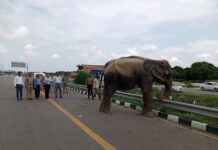(Juhi Aishwary, Journalist): Since the case of Covid-19, many studies on herd immunity have been reported. A study recently published in the prestigious medical journal Lancet concludes that herd immunity against Covid-19 is difficult to achieve. This conclusion is based on antibody levels in the Spanish population. According to the study, only 5 percent of the population of Spain developed immunity against the coronavirus. The study was funded by the Spanish Ministry of Health, Institute of Health Carlos III, and Spain’s National Health System.
Treat herd immunity as follows: Herd immunity is a condition in which a certain percentage of the population is immune to the disease due to antibodies after becoming ill, thus preventing the infection from spreading to the remainder of the population. This concept is commonly used in the context of vaccination. It can reach the community when enough people gain immunity after being infected. The basis of this is that if a certain percentage of people gain immunity then members of that group cannot infect any other person. It breaks the chain of infection through the community and prevents those who are most vulnerable.
This study is therefore important: This is the largest serological study ever conducted in Europe and cites the exact number of COVID-19 infections that cannot be detected by laboratory tests. It provides an estimate for the population of the whole country. The study estimated the total antibody range to be 3.7 percent to 6.2 percent. Also, the estimated number of people who have confirmed the virus in the test, who are without symptoms, the estimated number of people in the Spanish population was from 3.76 lakh to 10.42 lakh.
95 percent of people are unsafe: This is a large-scale seroepidemiological study. This concludes that antibodies developed in only 5 percent of the Spanish population in response to SARS-COVID-2. This means that the virus can easily catch 95 percent of people. The study, conducted between 27 April and 11 May, involved 68,805 people. It was found that antibodies developed in the population of the country by 5 percent through the point of care test and 4.6 percent in immunoassay. Antibody levels were 10 percent higher in the seven provinces of Spain, including Madrid. At the same time, in the coastal provinces, only in Bbislona was 5 percent more. The age-related findings found the antibody level to be 1.1 percent in children under one year, 3.1 percent in children aged 5 to 9, and 6 percent in people 45 or older through the Point of Care test. Its level also increased with age.
Unacceptable Herd Immunity Approach: All previous studies provide information about the virus, but this reinforces the argument that it is not possible to achieve herd immunity at this level in the absence of treatment or vaccines. As Germany’s virologists Isabel Ikerle and Benjamin Mayer wrote in The Lancet, the approach to achieving herd immunity through natural infection is not only unethical but also unacceptable. The virus may return as a second wave due to a large number of population infections. ‘Also, this study gives a message for Spain as well as other countries that countries with a high prevalence of Covid-19 and the time for the epidemic to come to an end, need to be cautious about easing the sanctions. Only 5 percent of antibodies: At the beginning of the epidemic, the UK indicated its strategy that the coronavirus would be allowed to infect 60 percent of the country’s population, thereby achieving herd immunity. However, data from Spain shows that community transmission in a country has developed antibodies in a very small population. German virologists have raised two important issues regarding this. In which immunity after an infection is considered incomplete and temporary. It ranges from a few months to a few years. Second, it is not yet known whether these patients can be protected by other immune functions such as immunity






